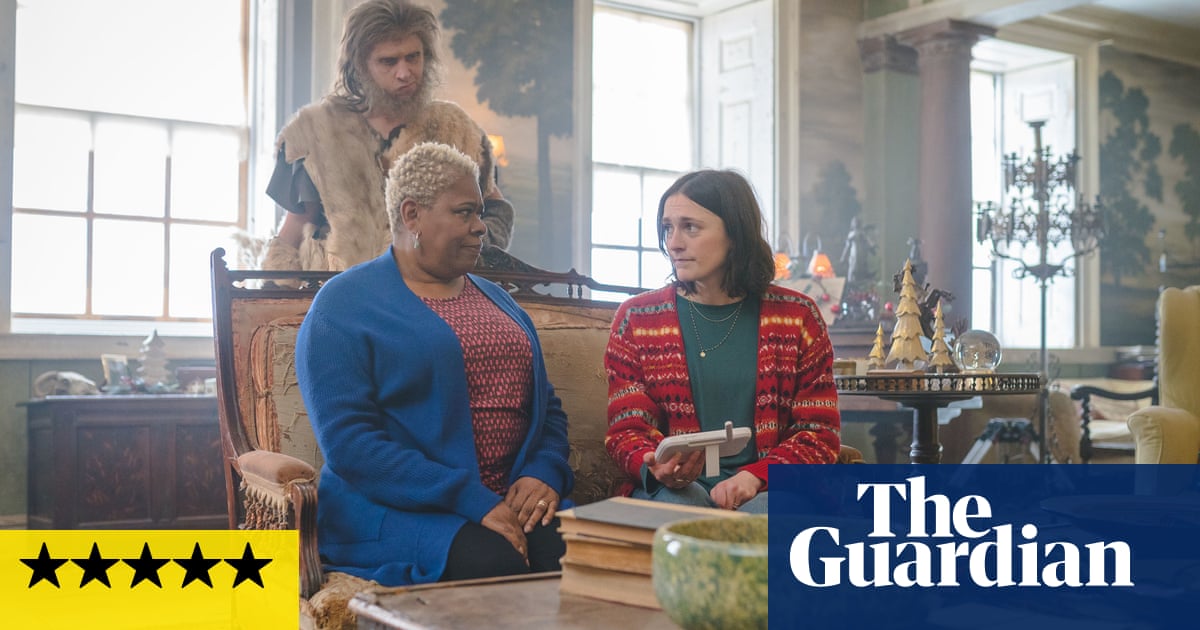
With the largest cast of trans actors in television history, Pose (BBC Two) was revolutionary before it even aired. The series, produced by Glee and American Horror Story’s Ryan Murphy and Brad Falchuk, from an idea and pilot script by Steven Canals, also had plenty of behind-the-camera representation, including writer-director-producers Janet Mock and Our Lady J. Yet by its 2018 debut, Pose’s supposedly “niche” subject matter wasn’t really all that outre.
New York’s drag ball scene was a creation of the Black and Latin LGBTQ+ communities that had long since emerged overground, albeit mostly via white, cis front-women such as Madonna, Sandra Bernhard (who plays Nurse Judy in the show) or the Broad City gals. As Pose’s third and final series airs, it’s clear the show’s big revelation was never that ball culture could entertain the masses – your auntie has been commenting “Yaaaassss Kween!” on Facebook since 2016 – but that the specific heartaches of a marginalised few could resonate deeply with the masses.
It’s now 1994, and the HIV/Aids epidemic is laying waste to thousands of young lives. House of Evangelista mother Blanca (Mj Rodriguez) and ballroom MC Pray Tell (Billy Porter) both have a closeup view of the devastation, though they cope in different ways. Blanca wants to get their chosen family (or “House”) ball-fit again, and is considering training as a nurse; Pray is hitting the bottle and turning up to the near-weekly funerals that take place reeking of Johnnie Walker.
If that sounds heavy-going, rest assured that season three is also awash with soothing 90s nostalgia, from a soundtrack comprised of Brandy, TLC and Music Box-era Mariah, to a Sex and the City-style brunch – to which only the “Samanthas” of the group have been invited, naturally. Big issues are introduced – substance abuse, marriage equality, mafia rackets and medical discrimination – but they’re all overcome with little apparent effort. Take Angel’s (Indya Moore) crack addiction: it only seems to last two episodes, from first pipe-toke to serene sobriety, and barely musses up her makeup. There are some valid excuses for Pose’s somewhat slipshod approach to timelines: Damon, the House of Evangelista dancer played by Ryan Jamaal Swain, had to be abruptly written out, for instance, when Swain suffered a sudden death in his family. But, in truth, Pose was always this way.
“Happy endings are for movies,” says Blanca in one of her absurdly numerous pep talks. “But I do believe in happy moments.” Arguably this wisdom hasn’t been heeded by a season that feels like one long glamorous goodbye, though Pose would never stint on “moments”. The imperious Electra (Dominique Jackson) doesn’t hold back with the insults, reading her rivals for filth at the slightest provocation; the costumes are utterly “sickening” (as Lola would say); and the next soapy secret or lip-sync extravaganza is never far away. These elements retain their capacity to delight, despite often being flimsily strung together by threadbare plotting.
Still, it’s no coincidence that the season’s two best episodes reach back into the past to find dramatic conflict. In episode three, The Trunk, we’re in 1978, when House of Abundance founder Electra was walking the piers in furs (no age-regression CGI necessary for that flawless complexion) and battling for the right to define herself with her Caribbean mother (Noma Dumezweni, in a very fine cameo).
In episode four, Take Me to Church, it’s Pray who takes centre-stage, returning to his home town to reconcile with his family (including aunts played by sitcom royalty Jackée Harry from Sister, Sister, and Janet Hubert from The Fresh Prince). As well as a critique of intolerance within religious institutions (Porter has described the Black church as a “complicated and complex space”), and a chance to see him perform a spine-tingling gospel solo, this is a glimpse at the alternative fate. What becomes of those stifled souls who never make a break for freedom in the big city? They get to retain their roots, but at what cost?
Given the continued discrimination, media misrepresentation and violence endured by LGBTQ+ people – and our trans siblings in particular – we might accuse Pose of sashaying away before the fight is won. But its version of revolution always included bettering the bleak truth through sheer force of imagination. And so, this show has offered up the happy ending that real life so cruelly denies. Angel, Blanca, Lola, Electra and Pray got to live out their wildest dreams. Everyone else must continue to dream. While “living” and “werking” and “posing” too, of course.












